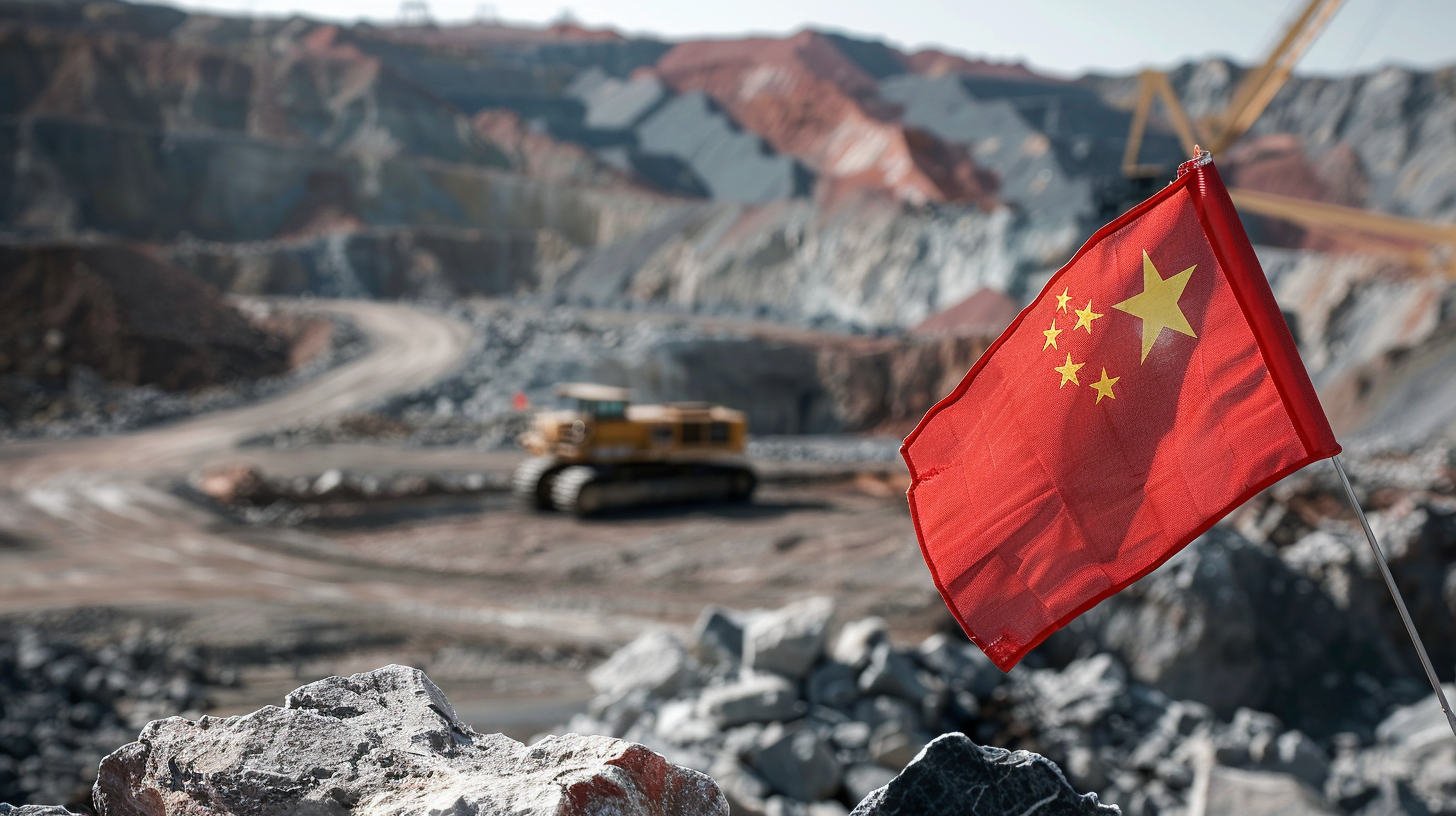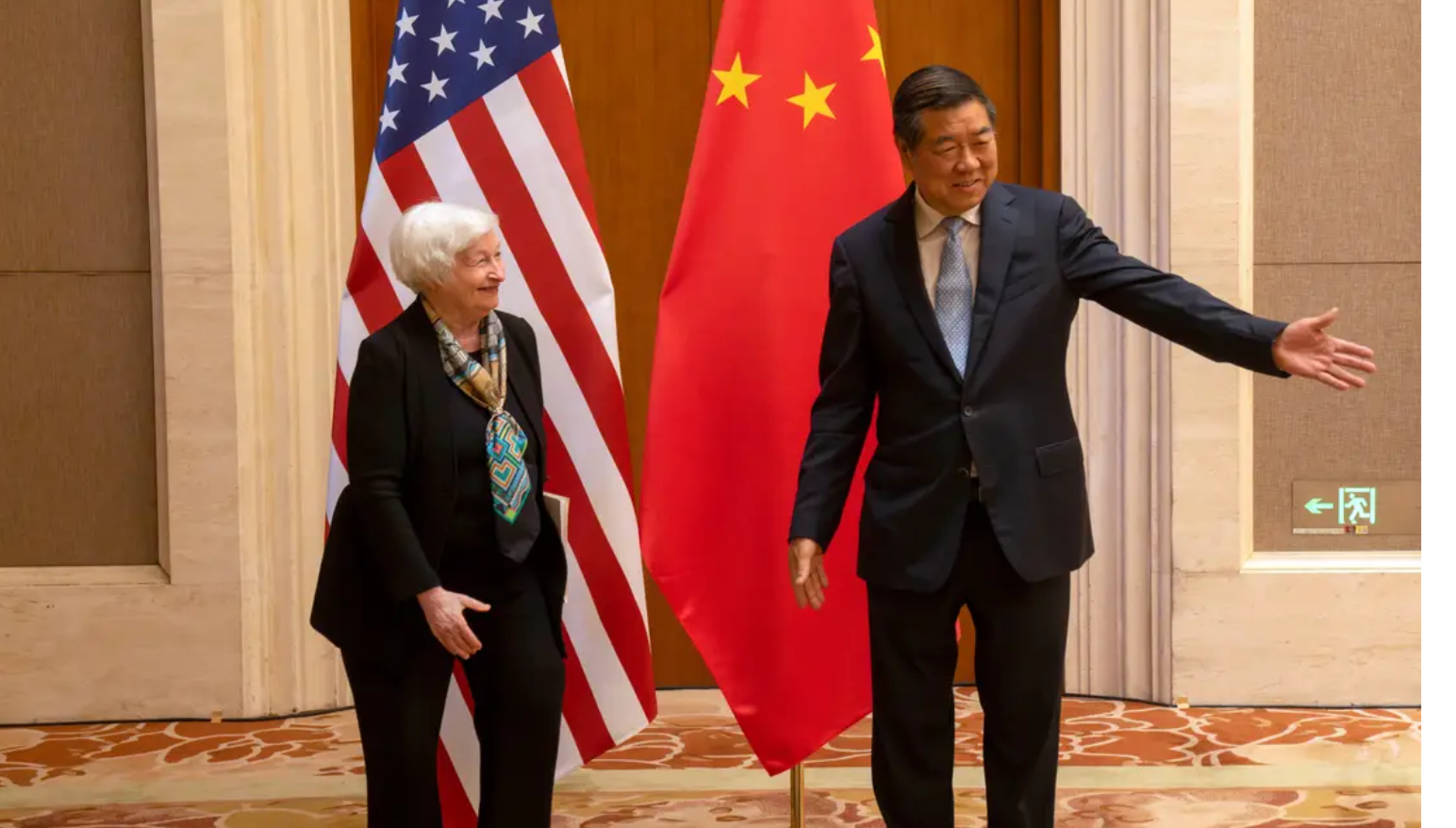| Key Points: – China lifts some trade curbs on 28 U.S. firms, but keeps rare earth metals off the table – Export ban on 7 critical rare earth elements remains intact – Dual-use export restrictions paused for 90 days amid renewed U.S.-China diplomacy – Defense, energy, and EV sectors in U.S. remain exposed to supply risks |
In a carefully calculated move, China announced on Thursday a temporary suspension of some trade restrictions targeting 28 American firms—but stopped short of lifting its export ban on seven critical rare earth elements, underscoring its ongoing strategic leverage over the United States.
The easing of some non-tariff measures comes just days after high-level trade talks in Geneva, where U.S. Treasury Secretary Scott Bessent and Chinese Vice Premier He Lifeng appeared together in a rare public show of diplomatic engagement. But while China’s Commerce Ministry agreed to suspend dual-use export curbs and temporarily removed 17 companies from its “unreliable entity list,” it retained export controls on key minerals like dysprosium, terbium, and yttrium—materials vital for U.S. defense and clean energy production.
The seven rare earths still restricted—samarium, gadolinium, terbium, dysprosium, lutetium, scandium, and yttrium—are central to everything from guided missiles to EV motors. According to analysts, this deliberate exclusion signals Beijing’s intent to maintain strategic pressure even as it opens the door to limited cooperation.
“This is China drawing a line in the sand,” said one Asia-based commodities analyst. “They’re signaling flexibility on diplomacy, but the core leverage—rare earth dominance—is not being sacrificed.”
The freeze on rare earth exports was initially introduced in early April as part of China’s retaliation against President Trump’s sweeping “Liberation Day” tariffs. That package included export licensing controls for the seven elements and the addition of several U.S. defense-adjacent companies to blacklists. While some of those companies, including Teledyne Brown Engineering and Kratos Unmanned Aerial Systems, received a 90-day reprieve, the rare earths ban remains firmly in place.
Notably, China’s Commerce Ministry released a parallel statement this week emphasizing the need for stronger national security oversight of its rare earth industry, including measures to combat smuggling and tighten internal supply chain controls. This was reinforced by state-linked social media accounts hinting at the metals’ impact on U.S. military readiness.
The U.S. currently sources over 70% of its rare earth imports from China, a vulnerability that has become more politically charged amid renewed trade hostilities. American efforts to diversify rare earth supply chains—such as investing in Australian mining firms or restarting domestic refining—remain years from full-scale viability.
For investors, the bifurcated approach by China suggests that while the broader trade environment may be softening temporarily, core strategic resources like rare earths are unlikely to be freely accessible in the near term. Defense contractors, energy manufacturers, and EV suppliers will continue to face uncertainty, potentially pushing up costs and driving supply chain shifts.
Until rare earth independence becomes a reality, this remains a pressure point Beijing is unlikely to relinquish.

